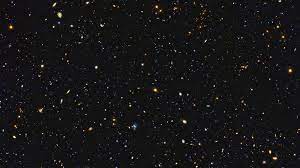
Space is the endless void outside of our atmosphere, it's very vast, so let's learn about it!
Our solar system consists of our star, the Sun, and everything bound to it by gravity — the planets Mercury, Venus, Earth, Mars, Jupiter, Saturn, Uranus and Neptune, dwarf planets such as Pluto, dozens of moons and millions of asteroids, comets and meteoroids. Beyond our own solar system, we have discovered thousands of planetary systems orbiting other stars in the Milky Way.The planetary system we call home is located in an outer spiral arm of the Milky Way galaxy.Our solar system consists of our star, the Sun, and everything bound to it by gravity — the planets Mercury, Venus, Earth, Mars, Jupiter, Saturn, Uranus and Neptune, dwarf planets such as Pluto, dozens of moons and millions of asteroids, comets and meteoroids.Beyond our own solar system, there are more planets than stars in night sky. So far, we have discovered thousands of planetary systems orbiting other stars in the Milky Way, with more planets being found all the time. Most of the hundreds of billions of stars in our galaxy are thought to have planets of their own, and the Milky Way is but one of perhaps 100 billion galaxies in the universe.While our planet is in some ways a mere speck in the vast cosmos, we have a lot of company out there. It seems that we live in a universe packed with planets — a web of countless stars accompanied by families of objects, perhaps some with life of their own.MoonsThere are more than 150 known moons in our solar system and several more awaiting confirmation of discovery. Of the eight planets, Mercury and Venus are the only ones with no moons. The giant planets grab the most moons. Jupiter and Saturn have long lead our solar system’s moon counts. In some ways, the swarms of moons around these worlds resemble mini versions of our solar system. Pluto, smaller than our own moon, has five moons in its orbit, including the Charon, a moon so large it makes Pluto wobble.Our solar system is the only place we know of that harbors life, but the farther we explore the more we find potential for life in other places.
back